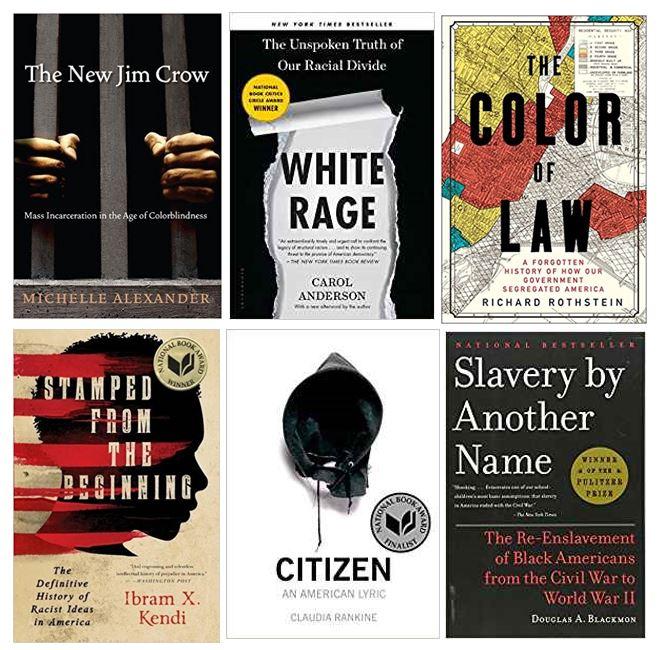Posted by Maeve on Friday, Aug 18, 2017
 Why Charlottesville and why now? There have been tweets and Facebook posts, news stories and magazine articles offering explanations, but for longer more reflective and scholarly works, you can turn to your library. The website Bustle published a list by Sadie Trombetta of 17 Books on Race Every White Person Needs to Read. The library has almost all of the books on the list and multiple titles of many. It isn’t a new topic and more books will surely be written.
Why Charlottesville and why now? There have been tweets and Facebook posts, news stories and magazine articles offering explanations, but for longer more reflective and scholarly works, you can turn to your library. The website Bustle published a list by Sadie Trombetta of 17 Books on Race Every White Person Needs to Read. The library has almost all of the books on the list and multiple titles of many. It isn’t a new topic and more books will surely be written.
One of the most acclaimed books from the list, The New Jim Crow: Mass Incarceration in the Age of Colorblindness by legal scholar Michelle Alexander, examines the legal structure of the courts, parole, probation and laws that effectively turn a perpetrator of a crime into a moral outlaw who is unworthy of rehabilitation. White rage : the unspoken truth of our racial divide by Carol Anderson, a professor of African-American studies at Emory University, is the book Senator Al Franken selected when asked by the New York Times Book Review to name a book you wish all Americans would read right now. Franken said, “There's a book called White Rage by Carol Anderson about a history that most Americans don't know: the history of oppression that African Americans have faced from the Civil War to the present day. If every American read it, maybe we could really begin to have a conversation about race in America.”
Richard Rothstein, a former columnist for the New York Times and a research associate at the Economic Policy Institute, as well as a Fellow at the Thurgood Marshall Institute of the NAACP Legal Defense Fund, has written The Color of Law: A Forgotten History of How Our Government Segregated America. Listen to Terry Gross's interview of Rothstein on Fresh Air. In Stamped from the Beginning: the Definitive History of Racist Ideas in America , assistant professor of African American history at the University of Florida, offers this history through chronologically arranged sections based on the lives of five figures from American history: socially and politically influential Puritan minister Cotton Mather; President Thomas Jefferson; prominent abolitionist and social reformer William Lloyd Garrison; civil rights activist and author W. E. B. Du Bois; and political activist and writer Angela Davis.
Claudia Rankine, winner of the Jackson Poetry Prize and chancellor of the Academy of American Poets 2014 work Citizen: an American Lyric recounts mounting racial aggressions in ongoing encounters in twenty-first-century daily life and in the media. Slavery by another name : the re-enslavement of Black people in America from the Civil War to World War II by Douglas A. Blackmon, Wall Street Journal bureau chief, is the groundbreaking and disturbing account of a sordid chapter in American history, "the lease (essentially the sale), of convicts to "commercial interests" between the end of the 19th century and well into the 20th.
None of these books are easy reads and they shouldn't be.

